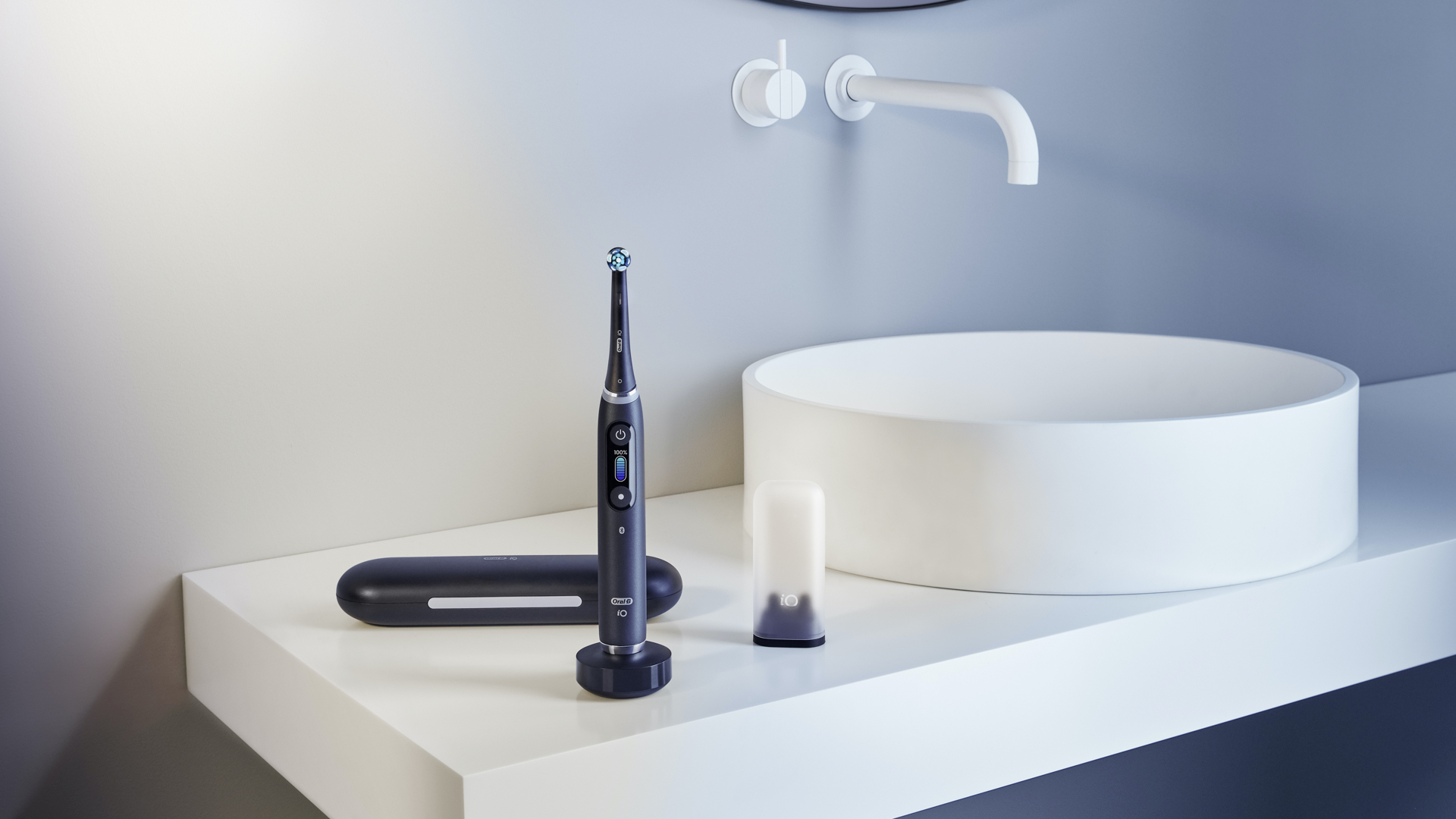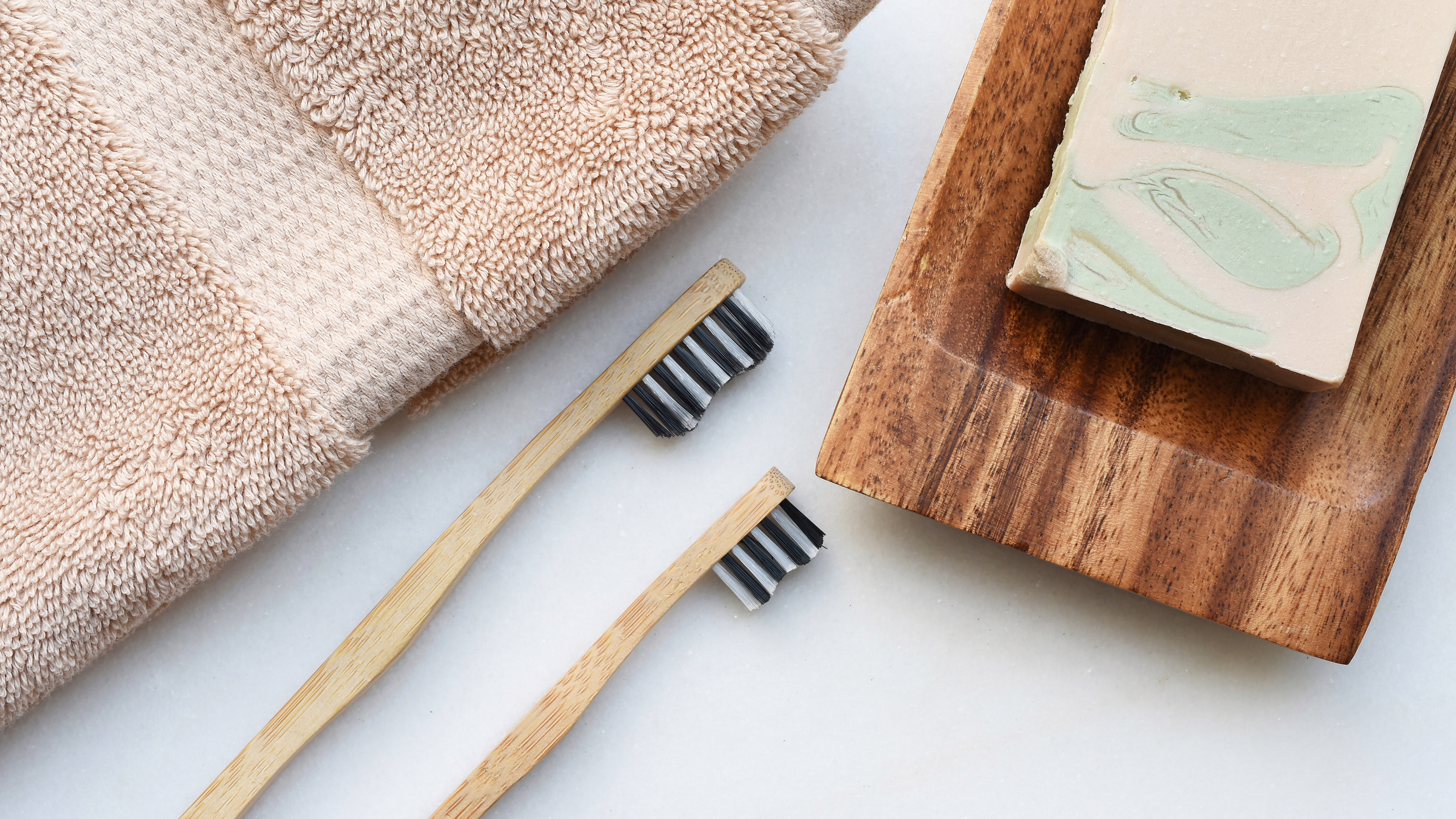Electric toothbrush vs manual brushing: which type provides the cleanest teeth?
We ask the experts to find out exactly why you should choose electric over manual or vice-versa

Get all the latest news, reviews, deals and buying guides on gorgeous tech, home and active products from the T3 experts
You are now subscribed
Your newsletter sign-up was successful
Brushing your teeth isn’t only the foundation of good oral care and the prevention of tooth decay, but it ensures you can actually smile on photos or speak to people without causing repulsion. As something you do twice a day, every day of your life, it’s - without question - worth investing in a good toothbrush to ensure you’ve got the best possible for the health of your beloved gnashers.
When it comes to choosing the top toothbrush for you, though, there are only really two main types available: electric and manual. According to the American Dental Association (ADA), both are effective at removing oral plaque that causes decay and disease. But, each has its own benefits. So, when pitted head-to-head, who comes out on top?
We’ll go through the pros and cons for each, with a few comments from an expert, before we weigh up which is the overall winner and crown the champion tooth-scrubber.
If you're looking to upgrade your oral health, check out our guides to the best electric toothbrush, best water flosser and best children's electric toothbrushes.

Electric toothbrushes
Also referred to as “power toothbrushes”, the electric category is often cited by dentists as better than manual when it comes to removing plaque.
Dental hygienist and founder of London Hygienist, Anna Middleton, agrees:
“You get a far superior clean [using an electric toothbrush] and up to ten times more plaque removal because you get more brush strokes per minute than you could ever generate yourself with a manual brush.”
Get all the latest news, reviews, deals and buying guides on gorgeous tech, home and active products from the T3 experts
She adds: “Manual is approximately 400 strokes per minute versus an electric such as the Philips Sonicare, which is up to 62000 strokes per minute.”
There are also a number of different types of mechanisms on offer in this category, but - to keep it simple - Middleton recommends that the two best types of electric toothbrush are those with rotary or oscillating heads, such as the Oral-B iO series, and those with sonic vibration heads, such as the Philips Sonicare lineup.
To summarise, here are the pros and cons of electric toothbrushes:
Pros of electric toothbrushes:
- More effective at removing plaque
- Easier for people with limited mobility
- Help you time your brushing better with built-in timers
- Have much smaller heads to ensure each tooth is cleaned individually
- Better at getting to hard-to-reach areas
- Many come with bluetooth connectivity and apps so you can track your cleaning
Cons of electric toothbrushes:
- Are much more expensive than manual toothbrushes
- Need to be charged frequently to work
- Are bigger and heavier and therefore less portable
- Some people don’t like the feeling
- Heads will need to be replaced every three months, and can be pricey
Expert tip: “While electric brushes will remove more plaque than a manual toothbrush, try to avoid battery operated toothbrush models,” adds Middleton. “They are not effective and the tendency to ‘scrub’ with one still remains, which can lead to damage of the gums.”
Instead, she advises that you should place the toothbrush bristles against the teeth at a 45-degree angle towards the gum line.

Manual toothbrushes
Regular, manual toothbrushes - the basic kind that usually have a plastic handle and various nylon bristle designs on the brush head - are the most common. This is despite advice from dentists as well as recent studies suggesting electric toothbrushes clean teeth and gums much better than a manual toothbrush.
On the other hand, the manual variety hasn't been made totally redundant just yet. Not only are they more affordable, but they're small and light enough to fit into pretty much any bag and don’t require a battery to work. This makes them a great backup for an electric user, for instance.
Here are the main pros and cons of manual toothbrushes:
Pros of manual toothbrushes:
- Available from almost every store, making them exceptionally convenient
- Very affordable and accessible
- Super portable and travel friendly
- Don’t require be charged to work optimally
- Wooden variety are more sustainable and better for the environment
Cons of manual toothbrushing:
- Some studies show they remove less plaque than electric toothbrushes
- Some people tend to brush too hard with manual toothbrushes which can damage the teeth and gums
- Not the best for people with limited mobility
Expert tip: “If you do opt for a manual, then opt for one with a small head and soft bristles and gently clean along the gum line focusing on one to two teeth at a time, no scrubbing,” explains Middleton.
Electric toothbrush vs manual brushing: final thoughts
It would seem that we have a clear winner. Without a doubt, electric toothbrushes tick all the boxes when it comes to dental hygiene, which we’d have to say makes them the best toothbrush type out there.
And don’t just take our word for it, according to a recent study conducted over 11 years by the Oral Health Foundation, people who use an electric toothbrush have healthier gums, less tooth decay and also keep their teeth for longer, compared with those who use a manual toothbrush.
Still, there’s clearly still a place in the world for a manual toothbrush. If your electric breaks or ends up in lost luggage, the trusty hand-powered option will be ready and waiting for you in your nearest convenience store to save the day...and your smelly breath!
Liked this?
- Make sure you check out the best electric toothbrushes

Lee Bell is a freelance journalist and copywriter specialising in all things technology, be it smart home innovation, fit-tech and grooming gadgets. From national newspapers to specialist-interest titles, Lee has written for some of the world’s most respected publications during his 15 years as a tech writer. Nowadays, he lives in Manchester, where - if he's not bashing at a keyboard - you'll probably find him doing yoga, building something out of wood or digging in the garden.
